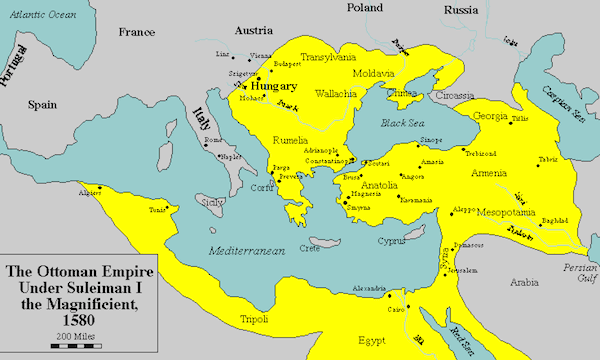


04/20/2017
In the spirit of No Good Deed Goes Unpunished, The New York Times bashed Hungary and its Prime Minister Viktor Orban for defending the nation’s freedom and sovereignty.
On Wednesday, the Times dedicated a big chunk of its above-the-fold real estate to picturing an Afghan family who experienced Hungary’s policy of detaining Muslim foreigners rather than welcoming Europe’s historic enemy.
Meanwhile in contrast, welcoming western Europe is suffering from worsening crime and conflict caused by the newbie Muslims’ misogynous culture and supremacist religious belief of world conquest for allah. Women’s safety in public has rapidly tanked in areas of high diversity, and going out after dark is an activity many women will not dare.
Eastern Europeans are more sensible regarding Islam since their ancestors lived under the brutal Ottoman rule. Present-day leaders like Viktor Orban have not forgotten the past where their European forebears lived under oppressive second-class status according to Islamic law.
If Hungary is indeed “hostile to migrants” as the Times says, that opposition has a deep historical cause of war and oppression.

But even as the Times criticizes “authoritarian” Orban, it admits “the rest of Europe is coming around to his approach.” Familiarity breeds contempt — particularly when the subject is barbarian Islam!
Already Unwelcoming, Hungary Now Detains Asylum Seekers, New York Times, April 18, 2017
HORGOS, Serbia — Double rows of razor-wire fences. High-tech watch towers equipped with search lights, motion sensors, cameras and loudspeakers. Hungary’s border with Serbia, specially fortified in the last two years to keep out migrants and refugees, is anything but a welcome mat.
Now, add to those deterrents detention camps — small container villages surrounded by razor wire, with a tiny playground for children.
Hungary, which already had one of the toughest immigration policies in the European Union, last month rolled out a draconian new asylum procedure that will reduce applicants to a trickle — 10 people a day — and essentially put them in prison camps for months while their cases are decided. Even after that, if the recent past holds true, more than 90 percent are likely to be rejected.
By May, several hundred asylum seekers already in Hungary may also be relocated to the detention camps, evoking ugly and unavoidable echoes of rounding up Jews, Roma and others during World War II.
But if Hungary’s authoritarian prime minister, Viktor Orban, provoked a loud outcry from his European peers by slapping up a razor-wire border fence two years ago as hundreds of thousands of migrants flooded into Europe, this time the condemnation, at least from his political peers, is more muted.
It is a measure of just how much the winds have shifted in his favor and against asylum seekers in Europe as nationalist, populist, far-right movements present a potent threat in a year filled with important elections, next in France and Germany.
If anything these days, Mr. Orban feels a sense of vindication and insists that the rest of Europe is coming around to his approach. He may be right.
Vast crowds of migrants, like those in the chaotic scenes at Hungary’s border with Serbia in 2015, are a thing of the past.
Frontex, the European Union’s external border control agency, has stepped up boat patrols in the Mediterranean to choke off the flow of migrants, particularly from Turkey to Greece.
The Greek authorities are holding thousands of migrants who crossed last year at camps on Greek islands, under sometimes difficult conditions, while their asylum applications are processed.
All of these measures have effectively squelched much of the traffic along the so-called Balkan route used by an estimated 764,000 migrants to enter Europe in 2015. In the first two months of this year, only 2,448 people tried to cross illegally using the same route, Frontex said.
“The Balkan route is basically closed,” said Erno Simon, a spokesman for the Office of the United Nations High Commissioner for Refugees in Budapest.
If that message has not already been received, Hungary’s new policies are intended to make it crystal clear …